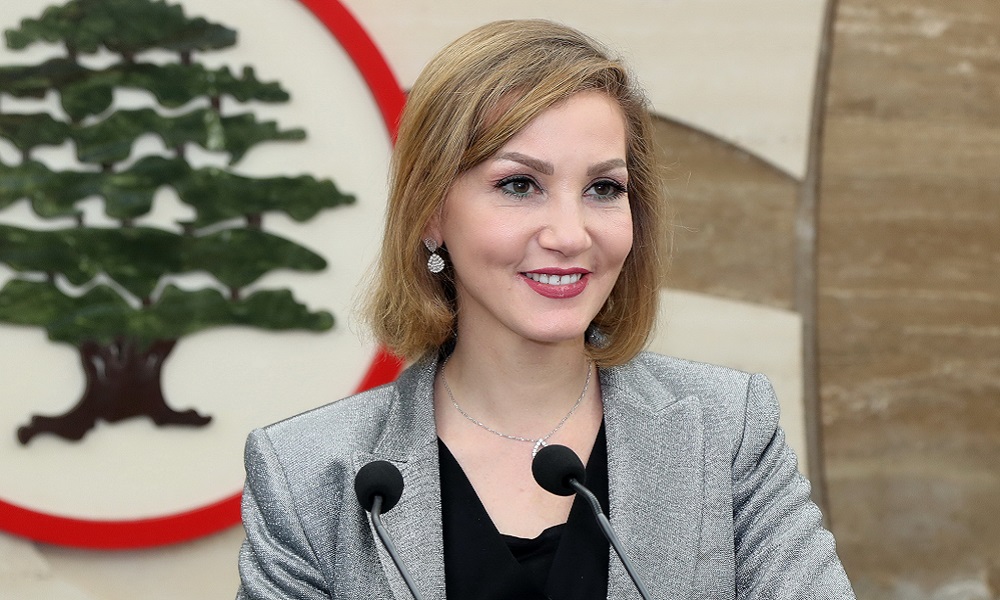
كشفت النائب ديما جمالي في مقابلة مع "دياليكتيك" أنها تعمل حاليا على التقدّم بمشروع قانون يساعد الشباب على تأمين فرص عمل لهم بعد التخرج من الجامعات في لبنان. هذا القانون بحسب جمالي، يستهدف كلّ الاختصاصات الجامعية، بحيث "يؤمّن لهم حقّ التدريب خلال سنوات دراستهم ويتيح لهم المجال أمامهم للحصول على فرصة عمل لاحقا".
"هذا القانون، في حال تمّ إقراره، سيلزم كل شركة في القطاع الخاص حسب حجم عملها ومؤسسات القطاع العام بتوفير فرصة التدريب للطلاب من جميع الجامعات وفي كافة الاختصاصات. هذا الأمر، سيتيح الفرصة لدى جميع الطلاب لاكتساب الخبرة المطلوبة قبل التخرج ولتأمين فرصة عمل بعد التخرّج، كما أنه سيحدّ من الإستنسابية في توفير مجالات التدريب". وعند سؤالها عن أهمية هذا المشروع أوضحت جمالي" أن هذا القانون سينظّم هذه العملية ويضع إطار قانوني لها تبعا لعدد الطلاب والخريجين في كل جامعة وتبعا لحجم القطاع الخاص".
في الحديث عن الشباب، لا تنفي جمالي التهمة الملقاة على عاتق المسؤولين " بالتقصير في تأمين فرص عمل للشباب"، إلا أنها تؤكّد على مسؤولية الشباب أنفسهم في "إثبات جدارتهم والاستفادة من أي فرصة تتاح لهم”. من هنا، فهي تعتبر أن "قانون التدريب متى تمّ إقراره، سيخلق فرص عمل للشباب. ولكن أيضا، يجب على هؤلاء الشباب أن يتحمّلوا بدورهم المسؤولية في إثبات جدارتهم وفي التقدّم بأفكارهم ومشاريعهم. من خلال خبرتي لمدة ١٥ عاما في العمل الأكاديمي أعلم تمام اندفاع وإصرار الشباب في الحصول على فرص وفي إثبات جدارتهم متى سنحت لهم الفرص. من هنا أدعوهم للاستفادة من أي نشاط والمبادرة وعدم الإستسلام من خلال تحميل الدولة والاوضاع الاقتصادية المسؤولية الكاملة".
لم تخطئ جمالي في إشراك الشباب وجعلهم طرفا أساسيا في صناعة مستقبلهم دون إغفال مسؤولية الدولة في تأمين المقوّمات اللازمة لإتاحة المجال أمام الطلاب الجامعيين من أجل البقاء في وطنهم وفي تحقيق طموحاتهم. "نحن نعي حجم الازمة التي يمرّ بها لبنان والتي تؤثرعلى الشباب الذين باتوا لا يؤمنون بوجود مستقبل لهم في لبنان". تصريح، بات أشبه بلازمة ترافق كلّ مسؤول في الدولة اللبنانية عند مناقشته عن الوضع الإقتصادي وشبه انعدام فرص العمل. إلا أن جمالي، الآتية من عالم الأكاديميا، تحاول فرض نمط من من المسؤولية المجتمعية تقوم على المبادرة الفردية في محاولة لإحداث خرق في المقاربة النمطية وفي النقاش الذي بات أشبه بالعقيم حول انتظام عمل المؤسسات في ظل الضغوطات السياسية والاقتصادية التي يكاد يكون عمرها من عمر لبنان باستثناء بعض المحطات المضيئة في التاريخ الحديث.
تقوم هذه المبادرة على "فتح الأبواب المقفلة أمام الشباب عبر إشراكهم في الحقل العام من خلال عملها النيابي". يشكّل التواصل مع الجامعات نقطة الإنطلاق في تحقيق هذه المقاربة بحيث تقوم على دعوة الطلاب من مختلف الجامعات لمشاركتها في الندوات وورشات العمل التي تقوم بها انطلاقا من مسؤوليتي كنائب عن مدينة طرابلس في الندوة البرلمانية. "على سبيل المثال، نظّمنا ندوة في مجلس النواب عن تصريف النفايات في طرابلس بحيث استقبلنا مجموعة شباب من الجامعة اللبنانية للمشاركة معنا". هذا النموذج تعمل جمالي لأن تجعل منه استراتيجية بهدف "إشراك الشباب أكثر في كل نشاط في المجلس النيابي وبحضور وزراء وسفراء وغيرهم لأن ذلك سيوفّر لهم فرصة التعرّف أكثر على عمل مجلس النواب وعلى آلية العمل في الحقل العام". هذا الاحتكاك، تضيف، "من شأنه ان يفتح الباب لعلاقات قد تؤسس لفرص عمل لاحقا لدى هؤلاء الطلاب". تعرض جمالي للمبادرات التي تقوم بها في هذا الإطار. " أطلقت برنامج "
هذا المشروع يتيح الفرصة لمجموعة من الشباب بتطوير المشاريع.Social Leaders Program”
التي يفكرون بها وخاصة في المشاريع ذات التأثير الاجتماعي، ورصدنا في هذا الإطار تمويل لأفضل مشروع. تمكنت أيضا من تأمين منح جامعية وما زلت أعمل على تأمين عدد أكبر منها وخاصة في الجامعات الخاصة مثل البلمند، جامعة القديس يوسف، والجامعة الأميركية للتكنولوجيا في منطقة الشمال". في الحديث عن نشاطها النيابيّ، تكشف جمالي أنها وعدد من الزملاء تقدّموا "باقتراح قانون لتخفيض الفوائد على الإسكان وخاصة لدى الشباب. هذا مشروع مهم جدا وحيوي. وحاليا نقوم بالضغط لإعادة قروض الإسكان".
يعود النقاش إلى نقطة البداية، أي مساعدة الشباب الجامعيّ من كل المناطق اللبنانية على تأمين فرص عمل. فهل تستطيع مبادرة فردية أن تصل إلى كلّ الجامعات والمناطق؟ هنا، تدعو جمالي كلّ الطلاب إلى التواصل معها ومشاركة أفكارهم وطروحاتهم من خلال مكتبها "الذي يفتح أبوابه بأي وقت لكلّ الشباب" بانتظار أن تعمّم هذه المبادرات في العمل النيابي وصولا إلى مأسستها.
حتى ذلك الوقت، ستقوم مؤسسة "دياليكتيك" انطلاقا من اهتمامها بدعم مبادرات ومشاريع تمكين الشباب، برصد نشاطات نائب طرابلس عن كتلة المستقبل النيابية "التي تولي الشباب أهمية خاصة في أجندتها"، فتكون صلة الوصل لأي طالب جامعيّ يبحث عن فرصة لطرح أفكاره ومشاريعه.


0 التعليقات
اترك ردًا
لن يتم نشر عنوان بريدك الإلكتروني. الحقول المطلوبة مميزة بعلامة *